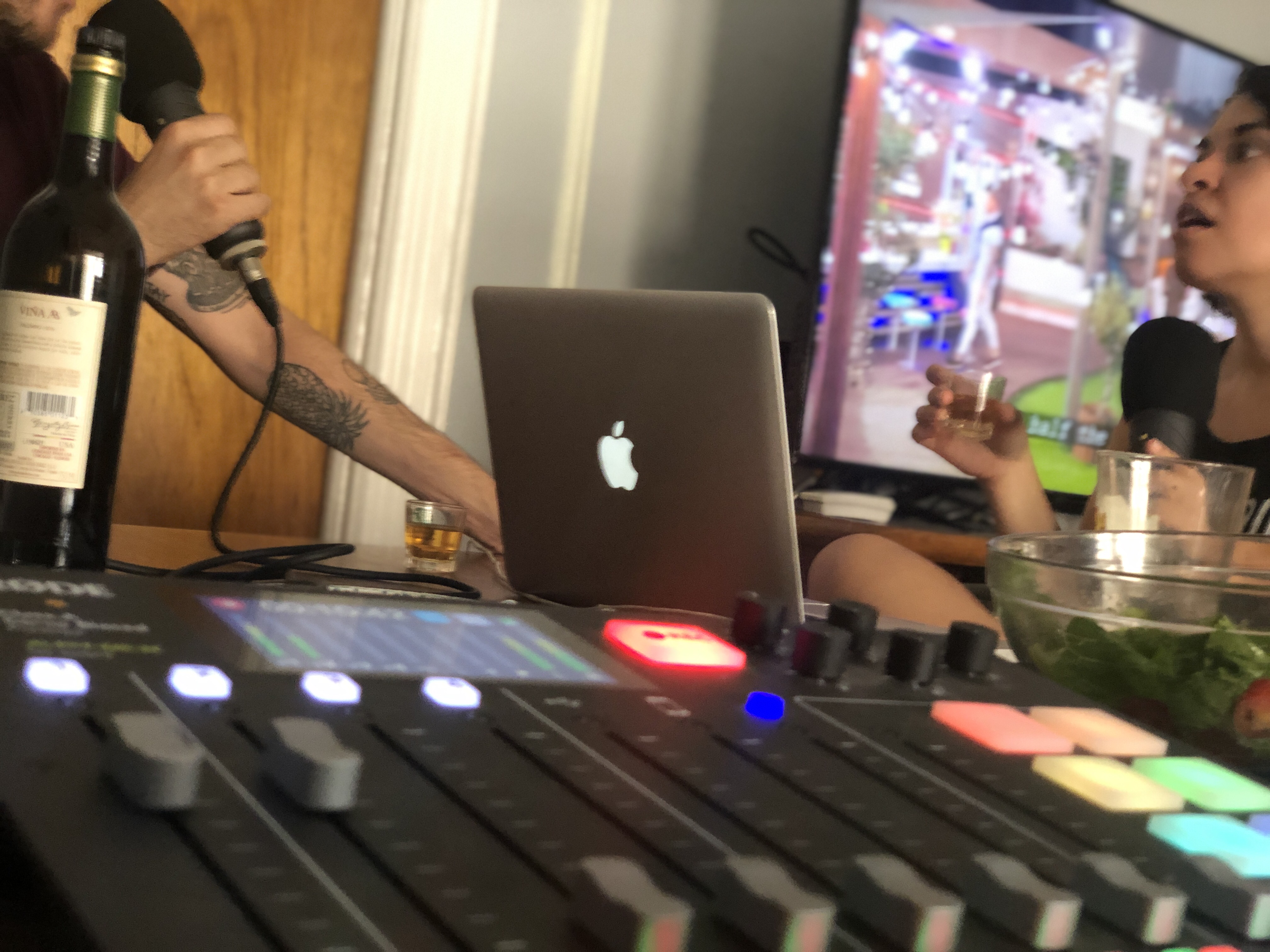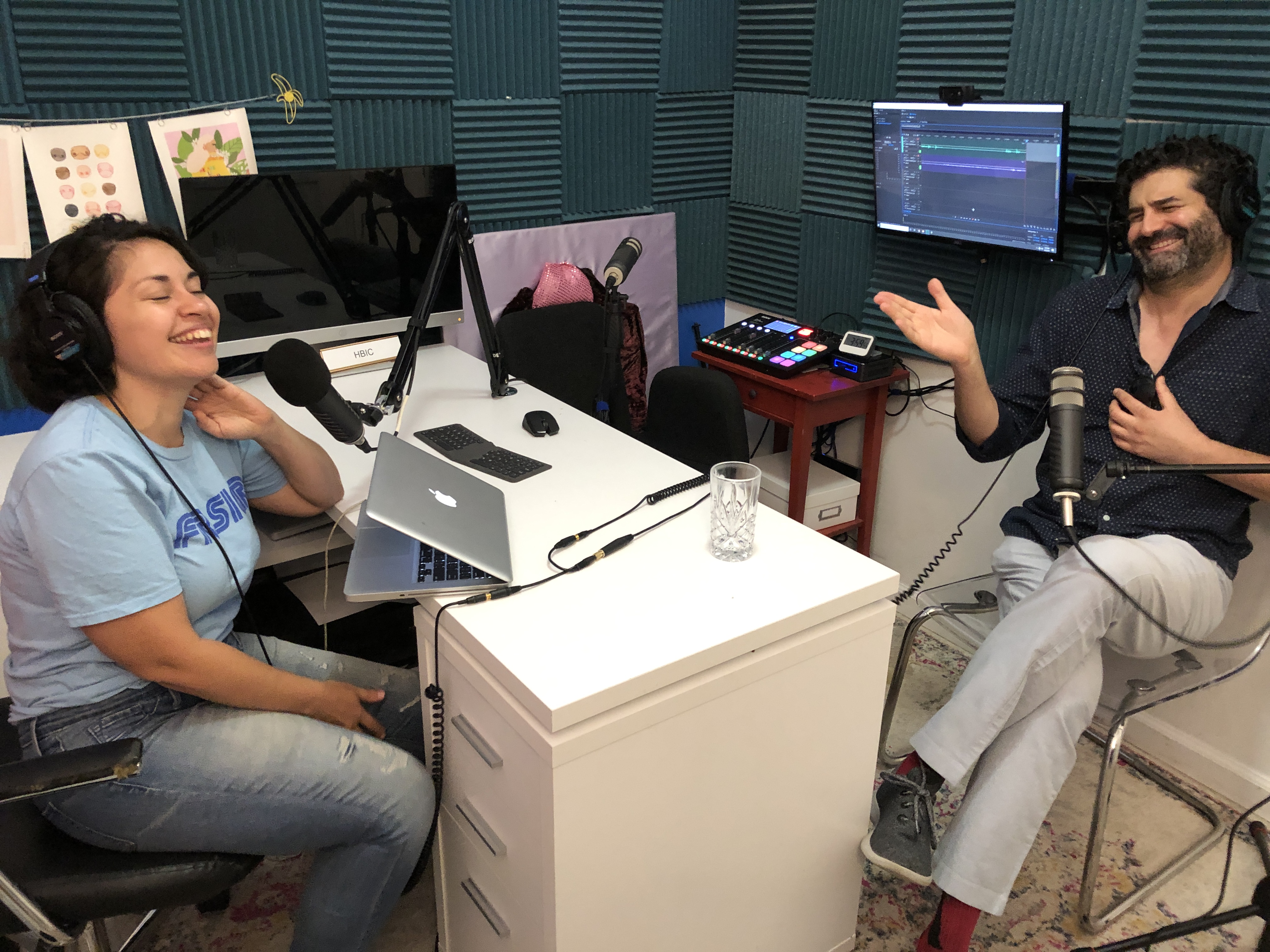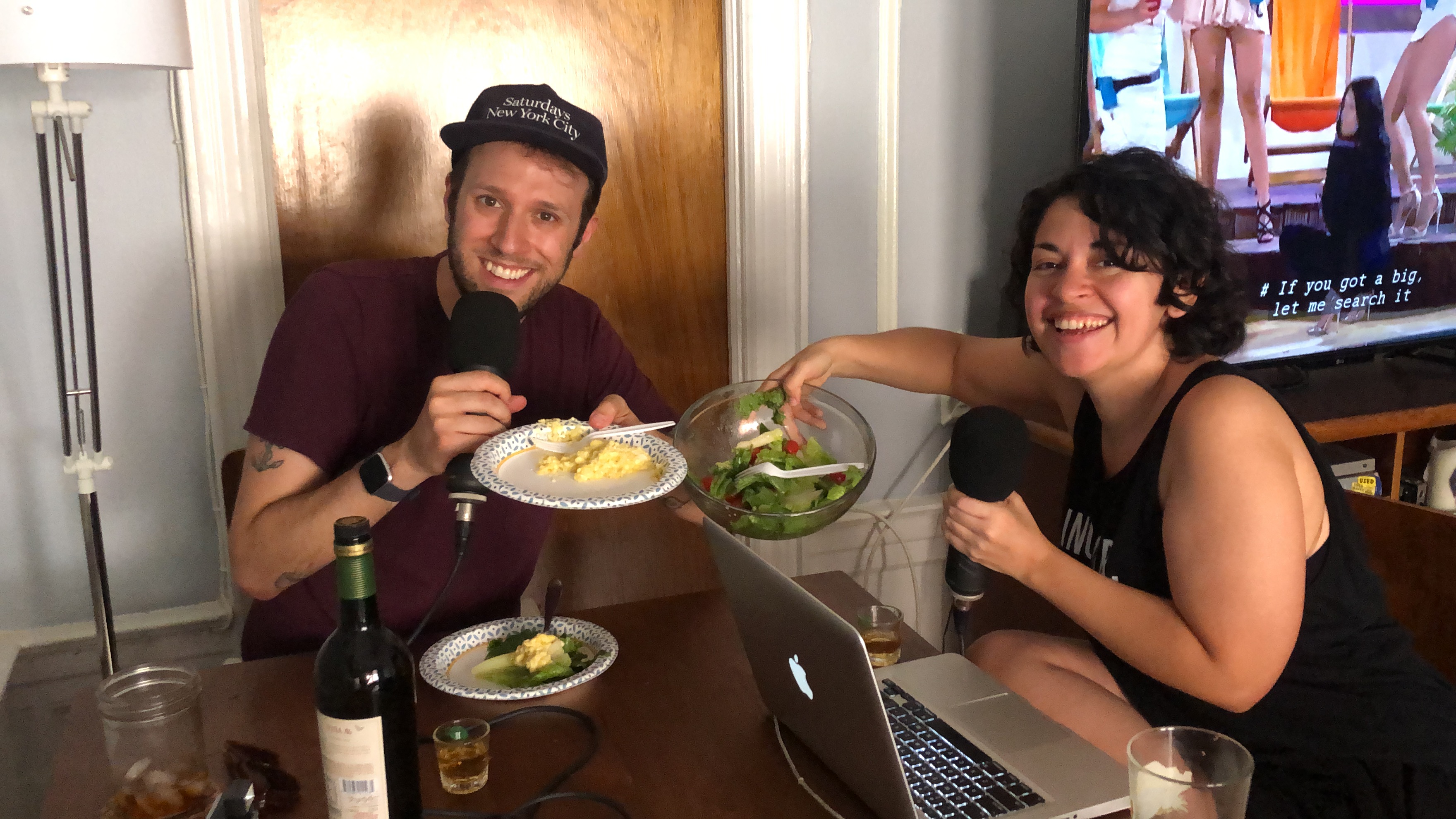The beauty of podcasting is that anyone can do it. It’s a rare medium that’s nearly as easy to make as it is to consume. And as such, no two people do it exactly the same way. There are a wealth of hardware and software solutions open to potential podcasters, so setups run the gamut from NPR studios to USB Skype rigs.
We’ve asked some of our favorite podcast hosts and producers to highlight their workflows — the equipment and software they use to get the job done. The list so far includes:
Let’s Talk About Cats’ Mary Phillips-Sandy and Lizzie Jacobs
Broken Record’s Justin Richmond
Criminal/This Is Love’s Lauren Spohrer
Jeffrey Cranor of Welcome to Night Vale
Jesse Thorn of Bullseye
Ben Lindbergh of Effectively Wild
My own podcast, RiYL

Some days it can be tough to know what to do with all of those tossed salads and scrambled eggs. Brooklyn-based comedian Anita Flores started a podcast. A Frasier podcast, no less. Each episode of the series examines a piece of everyone’s favorite “Cheers” spin-off with a different guest, including recent appearances by Rachel Bloom and John Hodgman.
Episodes of I’m Listening: A Frasier Podcast with Anita Flores can be found at purveyors of finer podcasts everywhere.

I record my podcast at More Banana Productions’ studio in Brooklyn. I’m lucky to call Caitlyn Moldenhauer, creator of More Banana, my producer. She makes sure that everything sounds great. This is Caitlyn’s studio.
It’s a beautiful space that captures the essence of what More Banana is all about: A podcast network with women-led production. Books with female authors scattered about, an RBG candle, art from women comic book artists and designers and a signed Prince poster. The studio is designed to be bright and comfortable, against other recording studios that tend to be dark and dungeonesque.
In terms of what kind of equipment, we use Rode Microphones and a Rodecaster Pro. We record mainly in Audition with an SD backup, because you always need a backup! Our setup allows for a simple plug and play for up to three microphones and is really simple to master. The studio also teaches women to engineer and edit podcasts, so it’s important that we have a setup that isn’t a barrier to learning as we introduce people to podcasting.
We have guests that come in to the studio, but a lot of them are in different states. In those cases, we use Google Hangouts or a phone number to speak with guests. We record the Skype feeds often, although when we can we prefer if guests calling in remotely record themselves with a studio, or close to it, microphone setup. For I’m Listening, the guests who call in on Skype often make the episode feel like an actual radio show. It’s an homage to the format of Frasier Crane’s radio show “The Dr. Frasier Crane Show.” So the sound of a Skype recording fits for that podcast, but not for all of them. We always prefer in-the-room sound instead of over digital.

Most importantly, we have a studio pet: Caitlyn’s French bulldog, Ella. She welcomes all of our guests at the door, and it absolutely sets the mood pre-recording. I usually don’t tell my guests there’s a dog (unless I know they’re allergic), so it’s always a fun surprise to see their reaction. Nothing like having a cute dog to fill a lull in conversation! It should be a law that all recording studios come with some kind of cuddly pet.
I recently recorded a special episode of “I’m Listening” in my apartment, I can’t reveal too much, but let’s say it involved eating tossed salads and scrambled eggs. The studio equipment that we use out of studio is the same Rode Mics and sound board (the Rode Procaster), which is really portable and works in non-studio spaces for the most part. We always use dynamic microphones because they help in spaces that you can’t always control for background noise, echo, etc. Caitlyn runs the sound board during these recordings to make sure all the audio sounds great.
Comments
Post a Comment